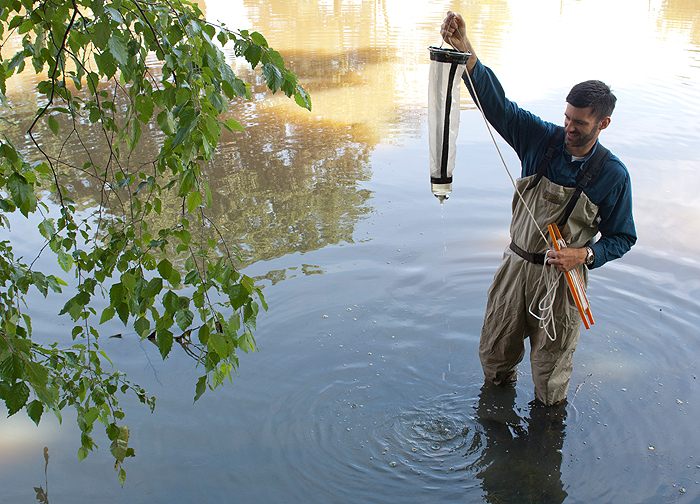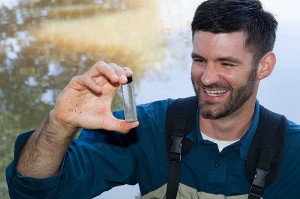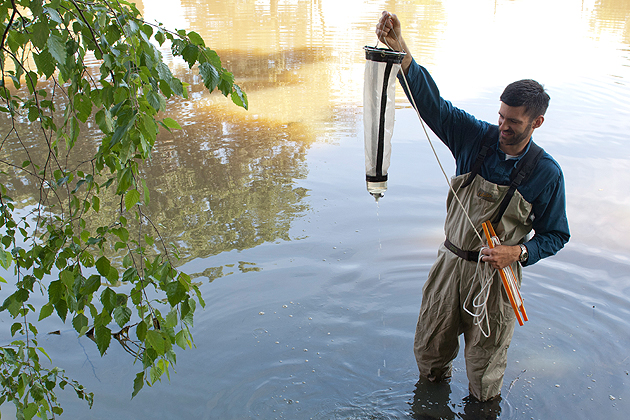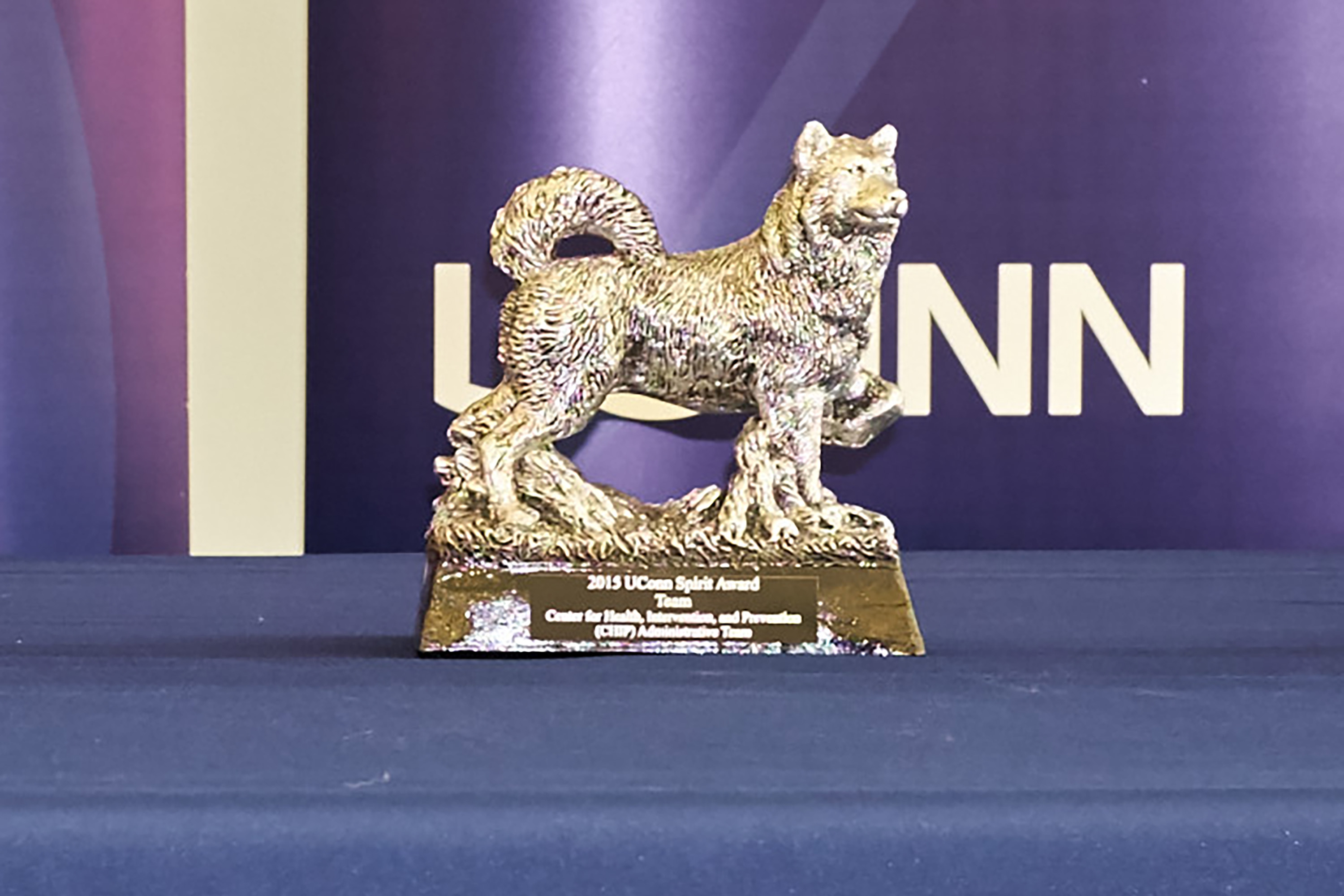
Mark Urban, assistant professor in ecology and evolutionary biology, has received the first James S. McDonnell Foundation grant ever to be awarded to the University of Connecticut. The five-year, $450,000 grant will allow Urban to experimentally test his mathematical theories of ecological and evolutionary change.
The CLAS professor was one of only 10 researchers funded across the globe for research on the topic of complex adaptive systems, which focuses on creating mathematical models to explain phenomena in such fields as biology, climate, epidemiology, demography, economic development, and governance.
“Scientists have a hard time explaining which species will make up a new community,” says Urban. “It’s context-dependent, and these experiments will help us understand the assembly of diverse sets of communities in nature.”
A complex adaptive system is composed of many different parts that, once put together, exhibit properties that the individual parts don’t display on their own. A common example is the electricity grid, explains Urban.
The grid embodies the four criteria for such a system: diverse elements that respond differently to change, such as homes with different energy demands; a spatial hierarchy, with houses and businesses spread out over land; movement between parts of the system, like the electricity that flows among buildings; and a dependence on chance events, such as a squirrel being electrocuted and cutting out power to a neighborhood.
“In this case, we would want to know: How do all these parts work together to allocate energy to the whole?” Urban says.
The complex adaptive system idea originated in the description of living things forming communities in nature, he says. These natural systems can be a proving ground for his theory, which combines both ecology and evolution into what he calls a “doubly complex adaptive system.”
Ecologists predict that when a species colonizes a new area, such as an island, that species will settle in the niche most suited to its natural history. But evolutionary biologists argue that if given enough time before a second species arrives, the original species could evolve, adapting to the other niches available on the island and excluding other colonists.
“To have perfect sorting of animals into niches would be an ecological view, but to have adaptation to different niches is an evolutionary view,” says Urban. “I’m looking at the intersection of these two.”

Urban will test his theory experimentally using plankton, which he says are ideally suited to his study because they reproduce quickly and can thus evolve rapidly. He will allow different types of plankton to colonize an artificial “island” in his laboratory and will observe the results.
He predicts that if he allows many species to colonize around the same time, they will fill the niches to which they’re predisposed. But if they’re spread out over time, he says, the earlier ones should evolve to fill more niches and exclude later arrivals.
Urban is the first to test these mathematical theories experimentally, and his work could help advance the fields of both ecology and evolutionary biology.
“It’s great being in an EEB department because both ecologists and evolutionary biologists can work together on these problems,” he says. “We can focus on these interesting and less-explored areas.”
Founded in 1950 by aerospace pioneer James S. McDonnell, the McDonnell Foundation was established to “improve the quality of life.” It does so by contributing to the generation of new knowledge through its support of research and scholarship.
Urban has also received a three-year, $500,000 National Science Foundation grant to study the evolution of local salamanders in different ecological niches. Find out more about Urban’s work on his web page and watch a video of his salamander work.



